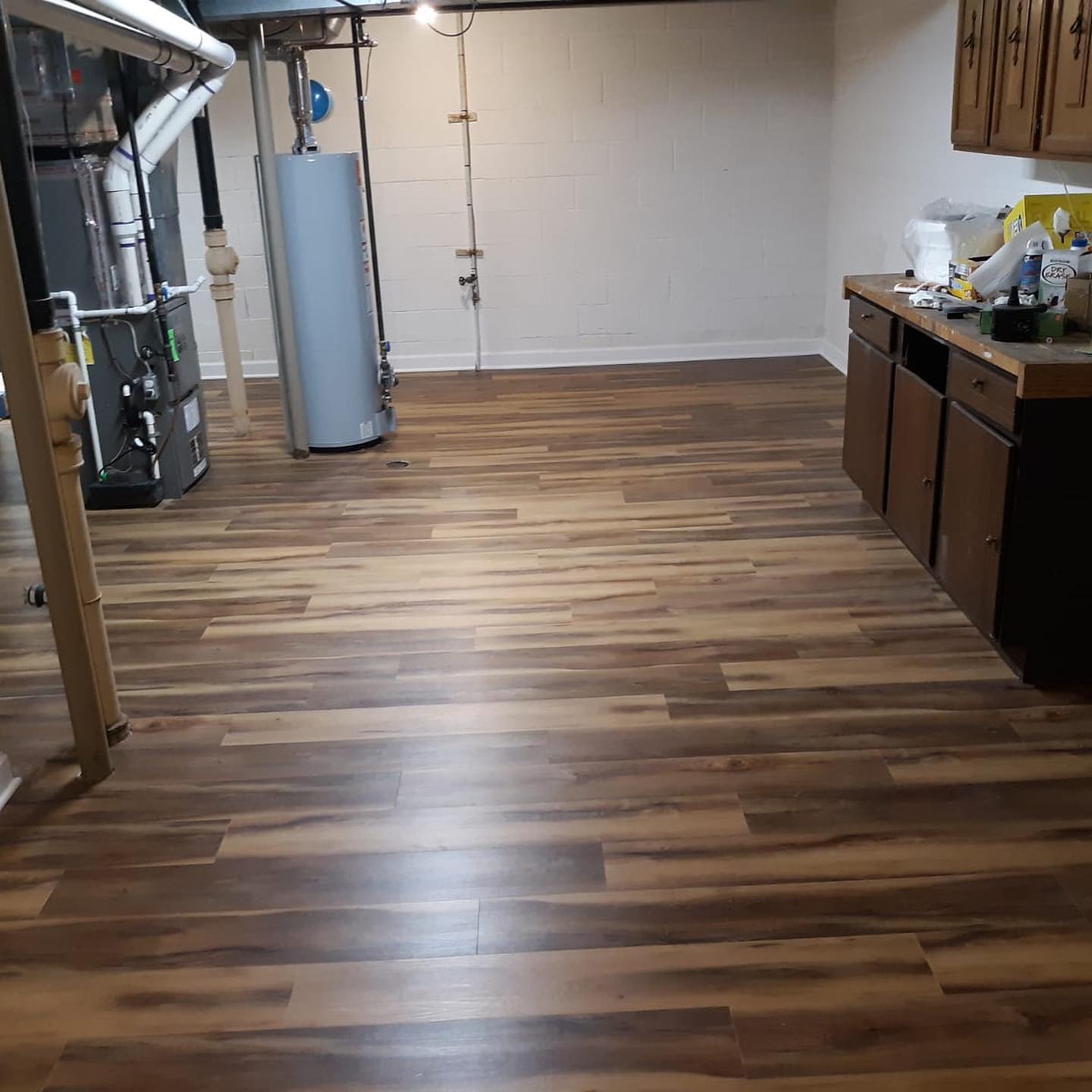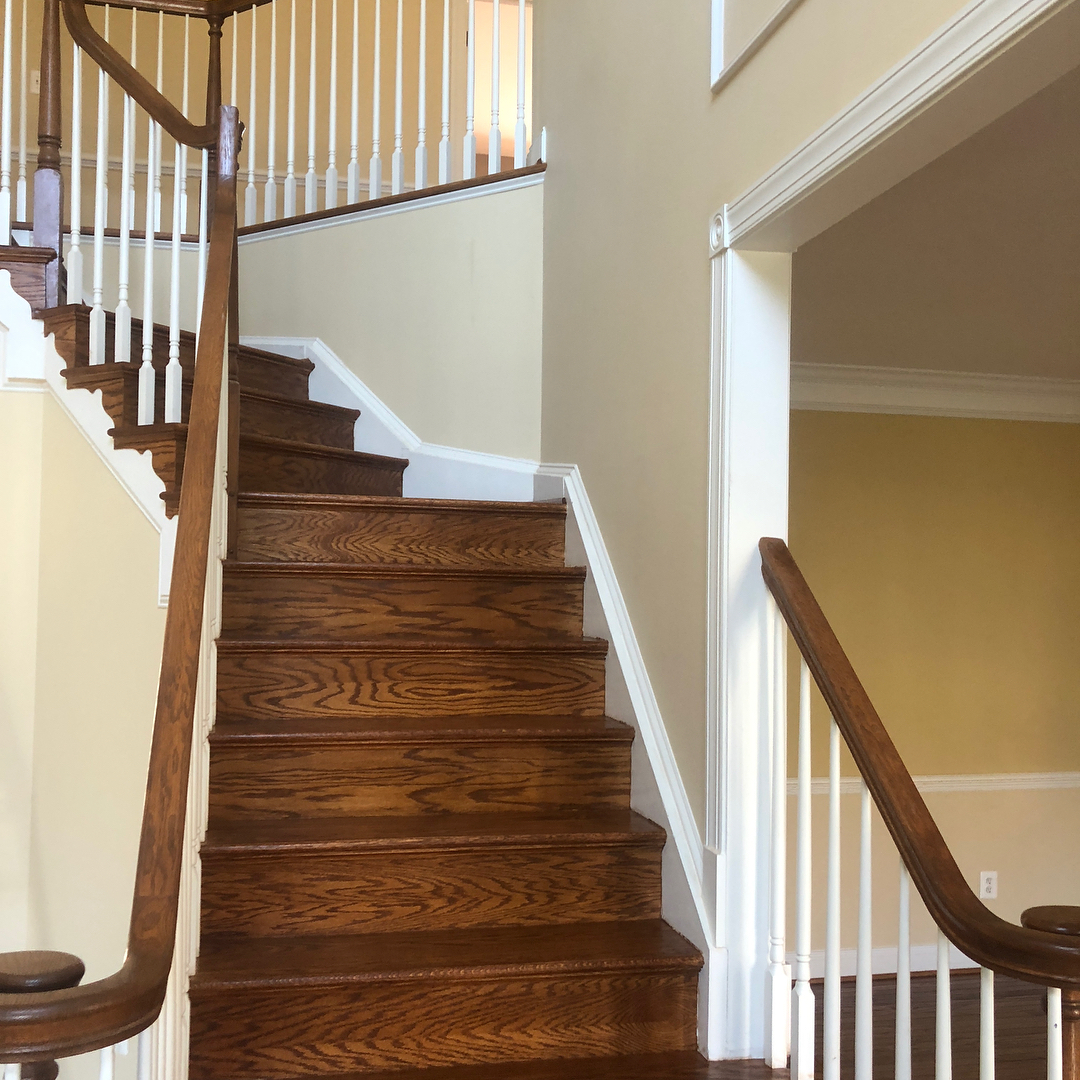Flooring for a Home Art Studio or Hobby Room in Maryland
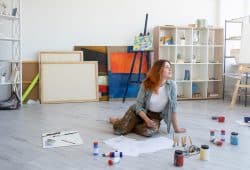
The Best Hobby Room Floors in MD: A Guide to Easy-to-Clean and Durable Choices
Crafting your art in Maryland requires a space that can handle the mess without sacrificing style. Imagine a hobby room floor that stands up to paint splatters and glue drips while still looking fantastic. With the right choice of art studio flooring Maryland offers, you’ll find options that are as beautiful as they are practical. Discover the best easy-to-clean workshop flooring and durable LVP for crafts, and transform your creative space into the perfect blend of function and flair.
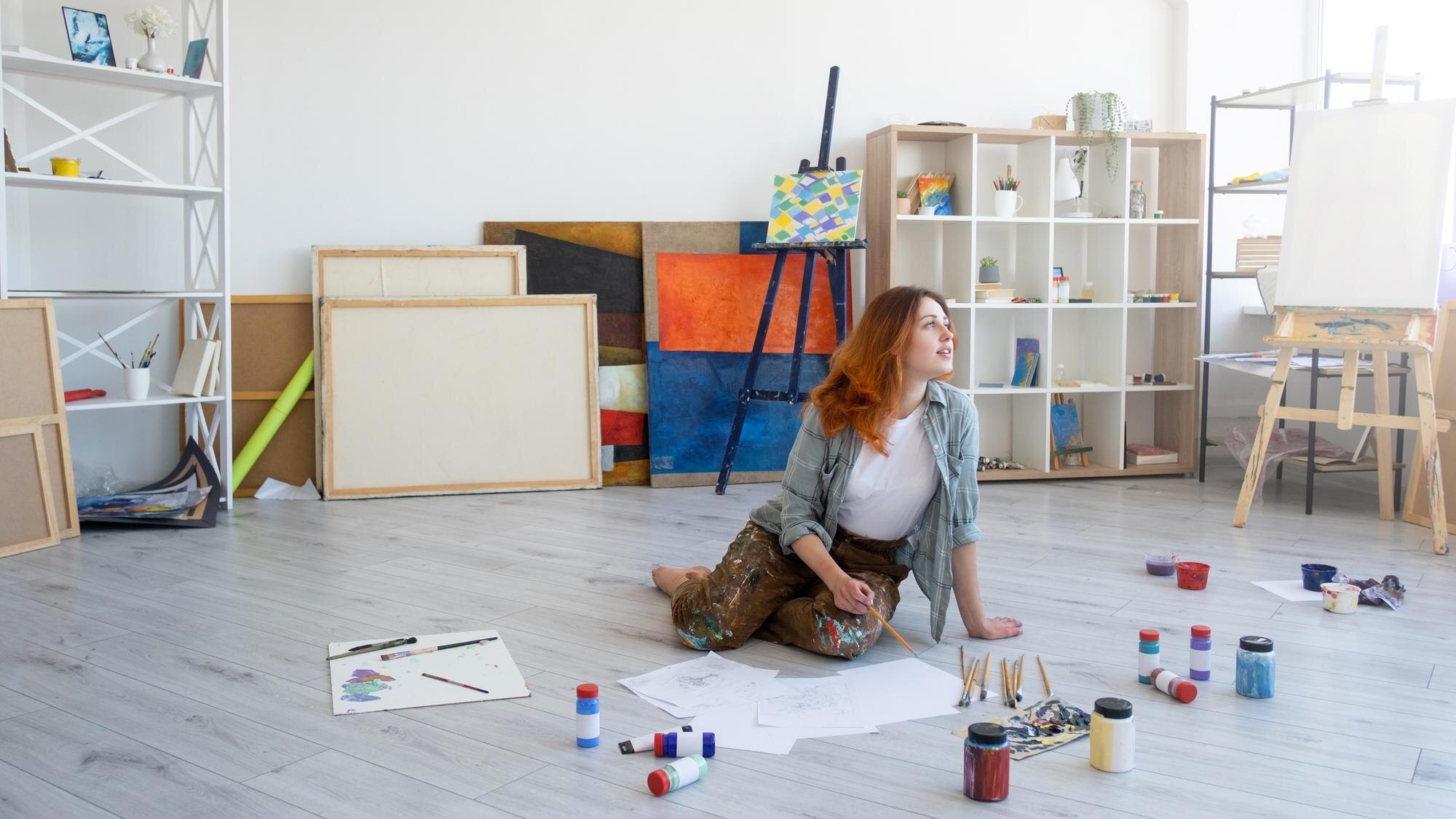
Considerations for Maryland Climate
Maryland’s climate can be challenging for flooring materials. The state experiences hot, humid summers and cold winters, which can affect your flooring choice.
Humidity is a major concern in Maryland. Some flooring options, like hardwood, can warp or expand in high moisture conditions. This makes moisture-resistant options more appealing for hobby rooms.
Temperature fluctuations also play a role. Floors that can handle these changes without cracking or separating are ideal. This is why many Maryland homeowners opt for materials like luxury vinyl plank (LVP) or tile.
Lastly, consider the impact of tracking in snow or rain. Waterproof flooring can be a smart choice for rooms that might see wet feet or damp materials brought in from outside.
Importance of Easy-to-Clean Options
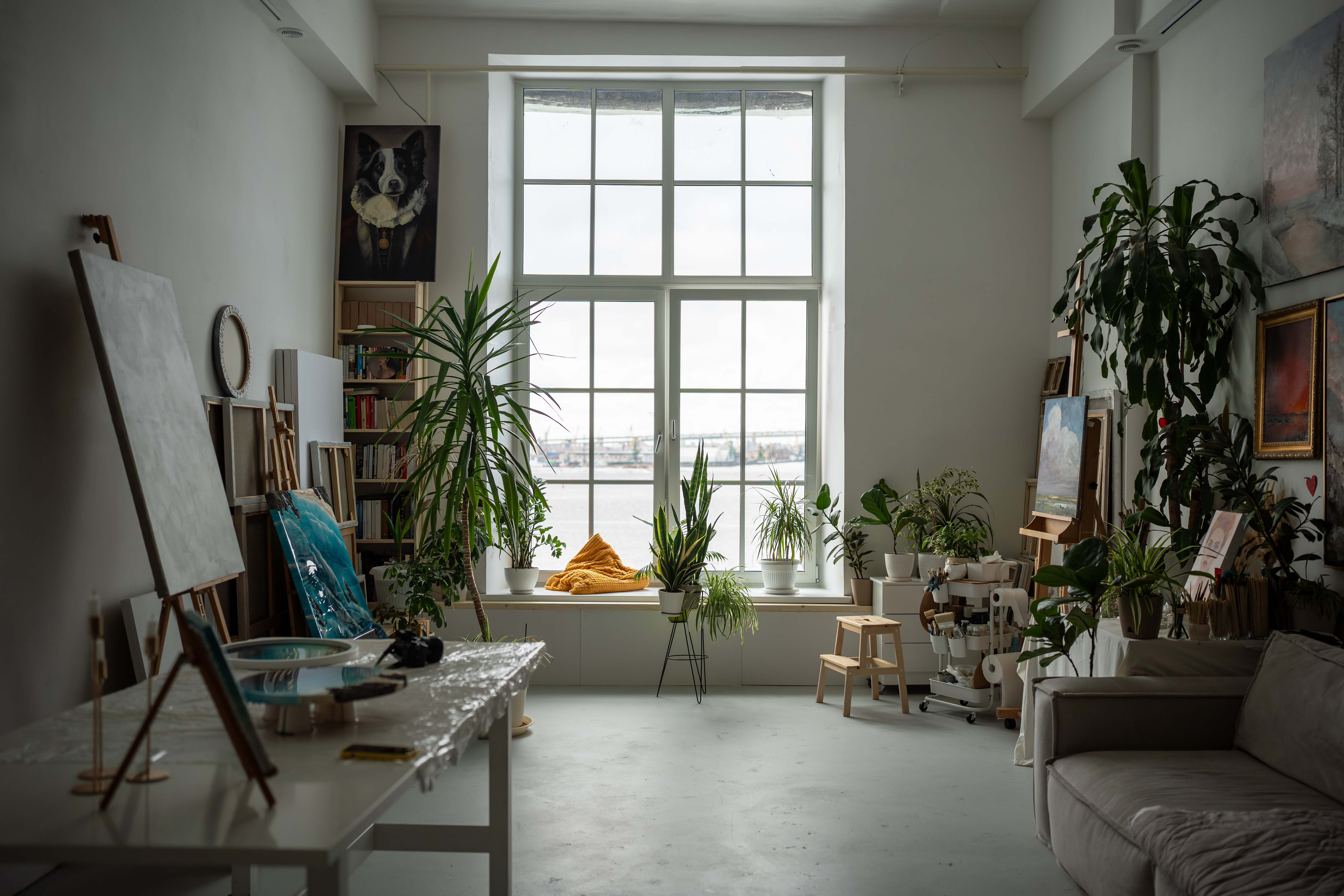
For hobby rooms, easy-to-clean flooring is not just a convenience – it’s a necessity. Your creative space will likely see its share of spills, stains, and messes.
Paint, glue, and other craft materials can be tough to remove from porous surfaces. This is why non-porous options like LVP or sealed concrete are popular choices for art studio flooring in Maryland.
Quick clean-up is also important. You don’t want to spend more time cleaning your floor than creating your art. Look for surfaces that can be easily wiped clean or vacuumed without special treatments.
Remember, some materials might stain more easily than others. If your hobby involves dyes or strong pigments, consider flooring that resists staining and discoloration.
Balancing Style and Functionality
Your hobby room should be a space that inspires creativity while meeting practical needs. The right flooring can help strike this balance.
Consider the visual impact of your flooring. Light colors can make a space feel larger and brighter, while darker tones can create a cozy atmosphere. The color and pattern of your floor can set the tone for your entire creative space.
Functionality is equally important. Think about the specific needs of your hobby. If you’ll be standing for long periods, a floor with some cushioning might be beneficial. For areas with heavy equipment, durability should be a top priority.
Don’t forget about noise. Some flooring options can help dampen sound, which can be helpful if your hobby involves music or if you want to minimize disturbance to the rest of the house.
Popular Flooring Choices

When it comes to hobby room floors in MD, certain options stand out for their durability, ease of maintenance, and style. Let’s explore some popular choices that combine practicality with aesthetic appeal.
Durable LVP for Crafts
Luxury Vinyl Plank (LVP) has become a go-to choice for many Maryland homeowners setting up craft rooms. This versatile flooring option offers numerous benefits for creative spaces.
LVP is highly resistant to scratches, dents, and stains, making it ideal for craft areas where dropped tools or spilled materials are common. Its durability means it can withstand the weight of heavy equipment without damage.
Water-resistance is another key feature of LVP. This is particularly useful in hobby rooms where water-based paints or other liquids might be used. Spills can be easily wiped up without causing damage to the flooring.
LVP also comes in a wide range of styles and colors. You can find options that mimic the look of hardwood, stone, or even concrete, allowing you to achieve the aesthetic you want without sacrificing practicality.
Easy-to-Clean Workshop Flooring
For those setting up a workshop, easy-to-clean flooring is a must. Several options fit this bill while still providing the durability needed in a working environment.
Epoxy flooring is a popular choice for workshops. It creates a seamless, non-porous surface that resists stains and can be easily swept or mopped clean. Epoxy floors are also highly durable and can withstand heavy equipment and foot traffic.
Polished concrete is another low-maintenance option. Once sealed, it resists stains and can be quickly cleaned with a damp mop. It’s also incredibly durable and can last for decades with proper care.
For a softer feel underfoot, consider rubber flooring. It’s easy to clean, provides some cushioning, and can help reduce noise in your workshop. Plus, it’s resistant to many chemicals and oils that might be present in a workshop environment.
Sustainable and Eco-Friendly Options
For environmentally conscious crafters, there are several sustainable flooring options that don’t compromise on durability or ease of cleaning.
Cork flooring is a renewable resource that offers natural antimicrobial properties. It’s comfortable underfoot and can help insulate your hobby room. While it requires sealing to resist stains, it’s generally easy to maintain.
Bamboo flooring is another eco-friendly choice. It’s harder than many hardwoods, making it durable for hobby rooms. Look for bamboo flooring with a tough finish to resist stains and scratches.
Recycled rubber flooring is an excellent option for those wanting to reduce their environmental impact. It’s durable, easy to clean, and can help dampen sound in your creative space.
Installation and Maintenance Tips
Proper installation and regular maintenance are key to ensuring your hobby room floor lasts for years to come. Let’s explore some important considerations and best practices.
Professional vs DIY Installation
Deciding between professional and DIY installation depends on several factors. Consider these points when making your choice:
Complexity of installation: Some flooring types, like LVP with click-lock systems, are more DIY-friendly than others.
Tools required: Professional installers have specialized tools that might be expensive to purchase for a one-time use.
Time and effort: DIY installation can save money but may take considerably longer, especially for beginners.
Warranty considerations: Some manufacturers’ warranties may be void if the flooring isn’t professionally installed.
If you’re handy and have the time, DIY installation can be rewarding. However, for complex installations or if you’re short on time, professional installation often ensures the best results.
Routine Maintenance Practices
Regular maintenance is crucial for keeping your hobby room floor in top condition. Here are some general tips:
Sweep or vacuum regularly to remove dirt and debris that can scratch the floor.
Clean spills immediately to prevent staining or damage.
Use manufacturer-recommended cleaning products to avoid damaging the floor’s finish.
Place mats at entrances to catch dirt and moisture before they reach the floor.
Specific maintenance practices may vary depending on your flooring type. Always refer to the manufacturer’s guidelines for the best care instructions.
Extending Your Floor’s Lifespan
To get the most out of your hobby room floor, consider these longevity-boosting tips:
Use furniture pads under heavy equipment or frequently moved items to prevent scratches.
Consider using area rugs in high-traffic zones to reduce wear.
Maintain a consistent indoor temperature and humidity level to prevent expansion and contraction.
Reapply protective sealants or finishes as recommended by the manufacturer.
Remember, a little preventive care goes a long way in extending the life of your flooring and keeping your creative space looking great for years to come.
Frequently Asked Questions
Let’s address some common questions about hobby room flooring in Maryland to help you make an informed decision for your creative space.
Best Art Studio Flooring Maryland
When it comes to art studio flooring in Maryland, several options stand out for their practicality and durability.
Epoxy flooring is a top choice for many artists. It’s highly resistant to stains, easy to clean, and can withstand heavy equipment. The smooth surface also makes it easy to move around carts or easels.
LVP is another excellent option. It offers the look of hardwood but with superior durability and water resistance. This makes it ideal for studios where spills are common.
For those seeking a more industrial look, polished concrete can be a great choice. It’s extremely durable and easy to maintain, perfect for busy studios with high foot traffic.
Remember, the best flooring for your art studio will depend on your specific needs and the type of art you create. Consider factors like ease of cleaning, durability, and comfort underfoot when making your decision.
Hobby Room Floors MD: What to Avoid
While many flooring options work well for hobby rooms, some materials are best avoided in these creative spaces.
Carpet, while comfortable, is generally not recommended for hobby rooms. It’s difficult to clean thoroughly and can trap dust and allergens. Paint, glue, and other craft materials can permanently stain carpet fibers.
Hardwood flooring, though beautiful, can be problematic in hobby rooms. It’s susceptible to scratches from dropped tools and can be damaged by water or chemical spills. If not properly sealed, it can also absorb stains easily.
Laminate flooring is another option to approach with caution. While it’s affordable, it doesn’t handle moisture well and can swell or warp if exposed to spills. It’s also not as durable as options like LVP or tile.
Always consider the specific demands of your hobby when choosing flooring. Durability and ease of cleaning should be top priorities for most hobby room floors in MD.
Cost vs Benefit Analysis
When evaluating flooring options for your hobby room, it’s important to consider both upfront costs and long-term benefits.
Initial costs can vary widely. Here’s a general price range per square foot for popular options:
Flooring Type | Price Range (per sq ft) |
|---|---|
LVP | $2 – $7 |
Epoxy | $3 – $12 |
Polished Concrete | $3 – $8 |
Rubber | $3 – $8 |
While some options like epoxy might have a higher upfront cost, they often prove cost-effective in the long run due to their durability and low maintenance needs.
Consider the lifespan of the flooring. Durable options like epoxy or polished concrete can last decades with proper care, potentially offering better value over time compared to less expensive but less durable options.
Don’t forget to factor in maintenance costs. Some flooring types require special cleaning products or periodic professional treatments, which can add to the overall cost over time.
Testimonials and Success Stories
Real-world experiences can provide valuable insights when choosing hobby room flooring. Let’s look at some success stories from Maryland homeowners and experts in the field.
Real Homeowners in Maryland
Maryland homeowners have found success with various flooring options in their hobby rooms. Here are a few of their stories:
“I installed LVP in my painting studio last year, and it’s been a game-changer. Spills wipe up easily, and it still looks great despite my constant moving of easels and supply carts.” – Sarah, Baltimore
Sarah’s experience highlights the durability and easy maintenance of LVP, making it a popular choice for art studios.
“As a woodworker, I needed something that could handle sawdust and occasional dropped tools. The epoxy flooring in my workshop has been perfect. It’s easy to sweep or vacuum, and I don’t worry about damaging it.” – Mike, Annapolis
Mike’s testimony underscores the resilience of epoxy flooring in high-demand workshop environments.
These real-life examples demonstrate how the right flooring choice can significantly enhance the functionality of a hobby room.
Flooring Success in Creative Spaces
Creative professionals across Maryland have found innovative ways to use flooring to enhance their work spaces.
A photography studio in Silver Spring uses white epoxy flooring to create a seamless backdrop for shoots.
A makerspace in Columbia installed rubber flooring to reduce noise and provide comfort for long hours of standing.
A pottery studio in Frederick chose sealed concrete for its durability against clay spills and ease of cleaning.
These examples show how different flooring types can be tailored to specific creative needs, enhancing both functionality and aesthetics.
Expert Recommendations and Advice
Flooring experts and interior designers specializing in creative spaces offer valuable advice for choosing hobby room floors:
“Consider the specific demands of your hobby. A painter’s needs differ greatly from a woodworker’s.” – Lisa, Interior Designer
“Don’t underestimate the importance of comfort. If you’ll be standing for long periods, look for flooring with some give.” – John, Ergonomics Specialist
“Think about the future. Choose a flooring that can adapt if your hobby evolves or changes.” – Mark, Flooring Contractor
Key takeaways from experts include:
Prioritize durability and ease of cleaning
Consider the specific needs of your hobby
Think about comfort for long-term use
Choose a versatile option that can adapt to changing needs
By considering these expert insights along with real-world experiences, you can make an informed decision about the best flooring for your Maryland hobby room.
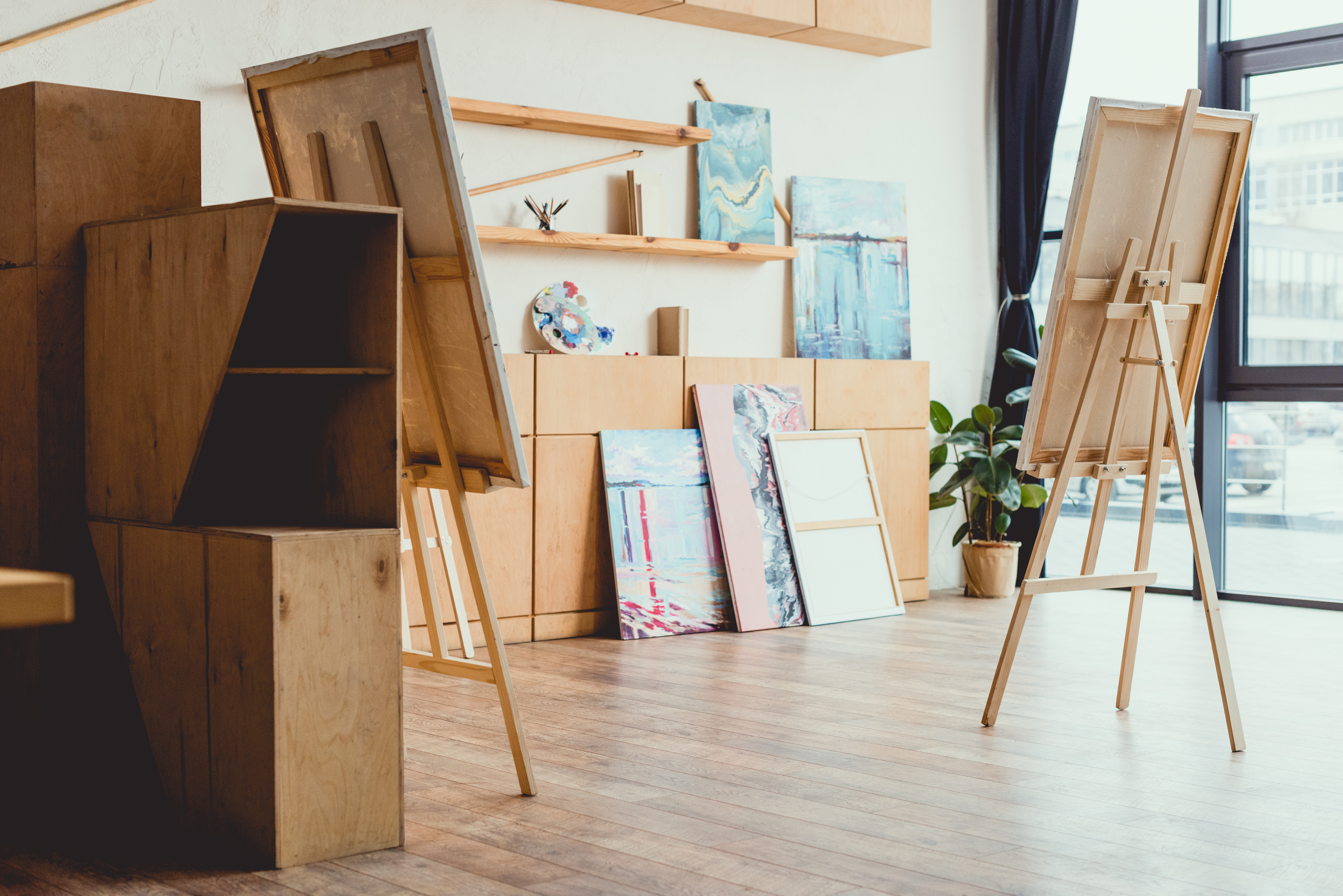
Fill out the form below and an AG Construction representative will contact you soon.
Contact Us Today


Whether you own a home or business, we’re your single source for complete flooring installation services! Our comprehensive services include:
- Hardwood staining, sanding, refinishing, restoration, and more!
- Carpet removal and installation
- Vinyl luxury plank replacement and installation
- Vinyl tile and COREtec installation
- And more!


